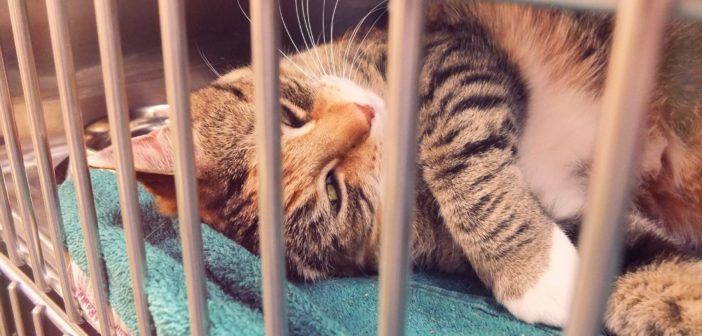“Look into that dog’s eyes,” her grandfather told her as they came upon a decrepit pooch on the street when she was a girl. “That is a hungry dog. His stomach is hungry but so is his soul.”
All of us look back on moments that change us and for Christie Smith—retired executive director of the Robert Potter League for Animals in Newport, Rhode Island—this interaction would shape her future, which included 35 years of helping companion animals via a local organization devoted to sheltering and adoptions.
“It took me years to figure out what my grandfather’s comments meant but it was a passion he instilled,” Christie told me. “My personal legacy from my grandfather is to worry about the hungry souls and spirits of millions of animals,” whom she wants to see treated with dignity.
Her grandfather, it turns out, was Clarence Gaines, who founded Gaines Dog Food. Sure, he knew something about feeding dogs’ stomachs but his comments about souls shaped a career of assisting animals—and working with people—that lasted for decades.
I am always fascinated, moved and motivated by the tales of my baby boomer colleagues who transformed the sheltering field into what it is today. They created something new that didn’t exist before through dedication, nose-to-the-grindstone hard work and lots of love for animals. Just think of the enormous number of lives they have improved and saved! Their efforts have certainly inspired me. There are a number of them across the United States—and, surely, around the world. I hope to profile more of them as time goes by.
Christie got her start in animal welfare as a board member for the Potter League for Animals, based in Newport, Rhode Island. In 1981, she was hired as the organization’s first executive director. She served in this role for 35 years until 2016.
“The Potter League and I grew up together,” she said, explaining that she was 31 years old when she became executive director. She had two young children and was working on her master’s degree.
“The board approached me as they were desperate for stability and at least knew me and my thoughts on sheltering because I served on the board of directors with them. They took a chance and it worked,” commented Christie.
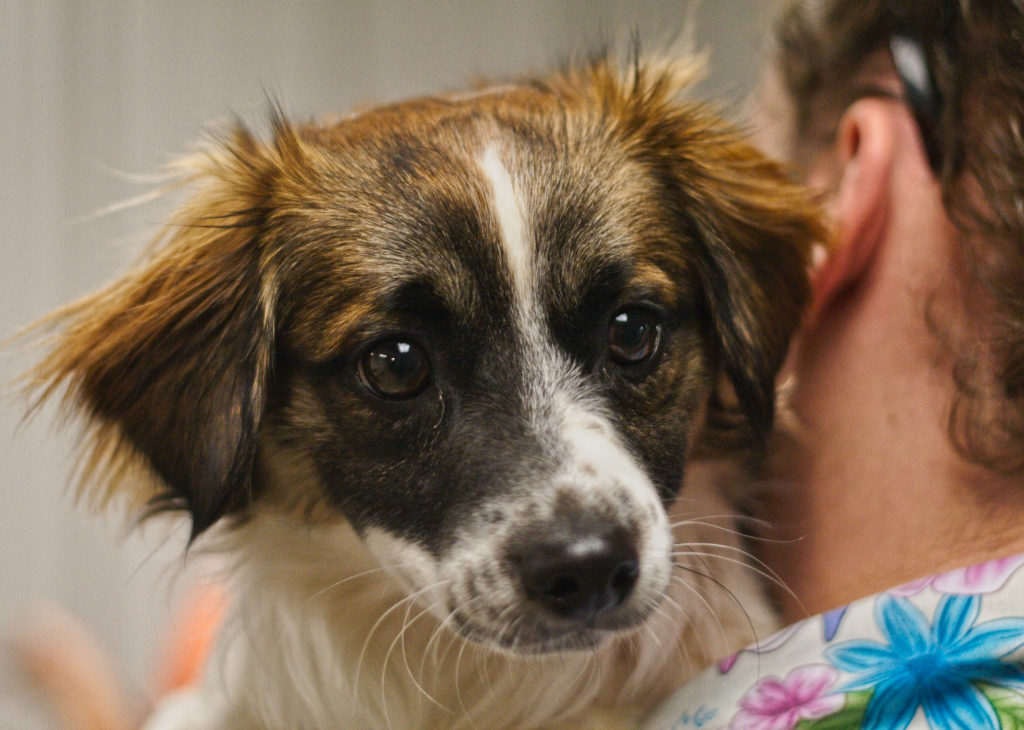
The organization was initially founded in the oceanside city in 1929 as the Newport County League for Animals. One of the original founders, Virginia Potter, left a bequest to the organization in the 1950s with the condition that the name be changed to honor her husband Robert.
“I loved the challenge, the uniqueness of each day. Just as every animal is unique with their own special needs, every issue of governance, fundraising and administration was also unique,” reflected Christie. “The fact that all this effort made a difference for animals was powerful in keeping me pushing forward.”
Were there individual animals of whom she had especially fond memories? Of course, as there would be for any shelter staffer or volunteer.
Hers included a sheltie named Bubble Bath Queen—commonly referred to as BBQ. BBQ was “probably hit and dragged by a car, leaving massive raw, open wounds on one side of her body. Some could be stitched; others needed months of bathing and very slow healing,” said Christie.
“BBQ was a great patient,” she added. “Very sweet and slightly comical, with a tail that was forever off-center when she fully recovered.”
There was also Moose, who “became the face of the shelter because he just couldn’t peacefully live in anyone’s home,” according to Christie.
The cat was returned after many adoptions and ended up living in the shelter’s office spaces. Moose ultimately became the Potter League’s mascot—or, rather, “mascat.”
“He had his own stationery and was a furious letter writer—the letters were often framed and hung by the recipients. He penned a weekly newspaper column, was beloved by kids in schools, visited the local hospital, and was the official greeter for all things Potter,” Christie said.
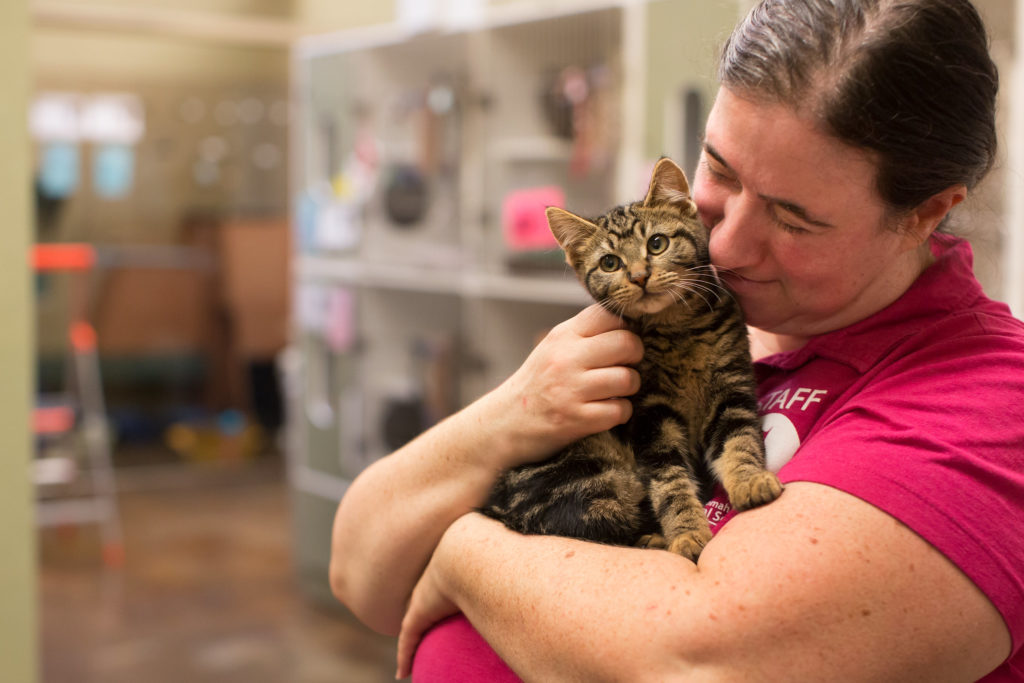
Rummaging through her memories, Christie also recalled a human-animal bond story that especially touched her. It involved a woman with six children and eight companion animals. The wife, mother and pet owner was planning to leave her abusive husband and she came to the Potter League for safe, temporary housing for the animals while she plotted her next stage in life.
“With a big heart, much courage and good planning, the family visited the animals every day for weeks until one day when mom loaded the van with kids and animals and drove cross country to a new life. Because of her commitment to keeping her entire family intact, she taught me so much about resiliency and the value our animals bring to our families.”
I asked Christie if she ever heard from this woman or her children again, but she never did.
Christie mentioned that the Potter League represented the American Humane Association on film sets to protect animal actors. “True Lies and Amistad were the two biggest films we worked on,” she said. “Truthfully, being on a movie set was my most favorite thing to do.”
As for the most difficult moments, Christie explained, “You witness things you never think you will. Every animal that was euthanized felt like a failure—even when euthanasia was the best outcome.”
She found hoarding situations—sometimes with dead animals lying around in filth with other pets who were alive but sick—were especially upsetting. Making them even worse were the hoarders who denied there was a problem.
But sad episodes motivated her to raise more money, create new programs and find solutions for more animals.
One major result of this motivation is the first LEED Gold animal shelter in the country and the first LEED Gold building in Rhode Island. LEED, which stands for Leadership in Energy and Environmental Design, is a designation for energy efficient buildings that are environmentally friendly. She sees her accomplishment as a gift to the animals and people of her community.
She hopes the Potter League’s new leadership will supplement this gift with an endowment campaign to strengthen its financial footing. Such a fundraising effort “is the last step of my legacy to the Potter League that is unfinished and still needed,” she said.
As for what she might have done differently in her role, Christie points to her shelter’s collaborations with human social-service agencies and wishing such partnerships would have started earlier than they did. The League eventually worked with domestic violence organizations and provided training for their staffs about the links between domestic violence, child abuse and animal cruelty.
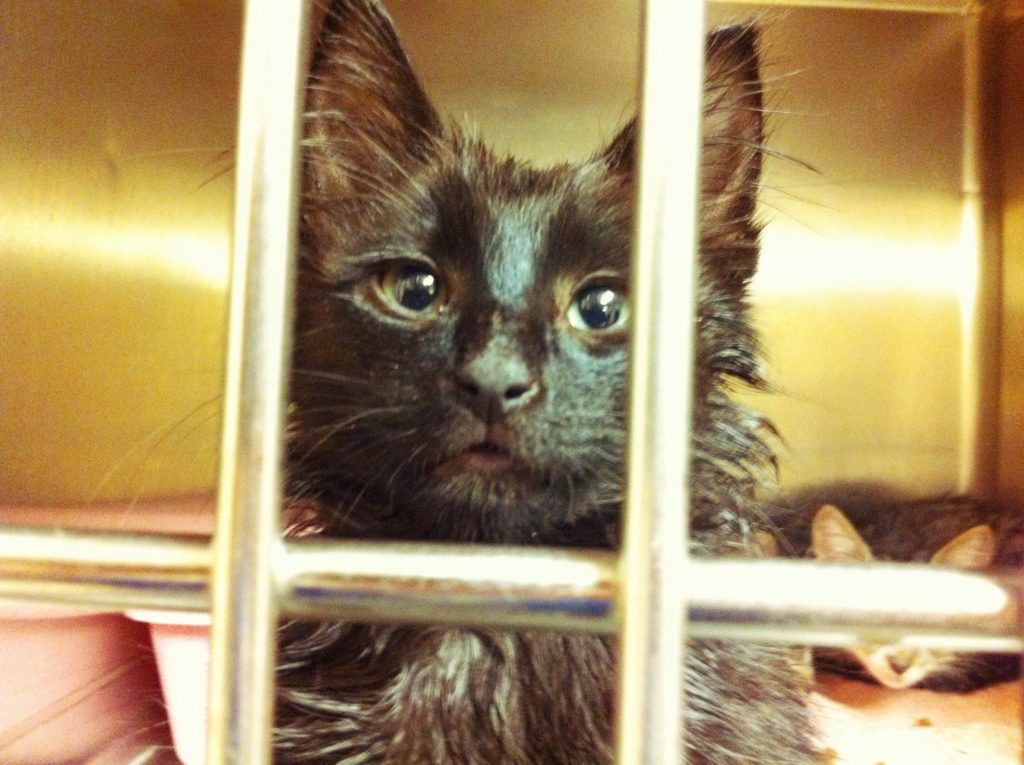
Imagining high-tea fundraisers among the ladies overseeing their mansions along the Cliff Walk, I was curious to know about Christie’s brushes with some of the more legendary inhabitants of lovely Newport. The Potter League received occasional small gifts from the family of Jackie Onassis, but not the former first lady herself. The Von Bulow family years ago made donations to support programs combating the effects of domestic violence. And Doris Duke, who Christie termed “a huge animal lover,” would move her camels from New Jersey to Newport in the summer.
In addition, Rhode Island’s senator Claiborne Pell, whose name we know because of federal Pell education grants, and his family were quite active with the shelter. Pell’s wife Nuala and her daughter Julie served on the board. Nuala’s mother had supported the organization back in the 1930s.
“Our animal care fund is named for Nuala and she was, without a doubt, one of the most passionate and active animal lovers in Newport,” stated Christie.
Upon making her decision to retire, Christie realized, “It was time. I was ready. All that I wanted to accomplish was completed, and new vision and voice was needed to build on a strong foundation.”
These days, she spends time with grandchildren, as well as traveling, swimming, exercising through water aerobics, gardening, reading at the beach, and compiling generations of family photographs. She has no pets at the moment, but she is “looking for the one that speaks to me.”
She currently stays busy as a member of the board of directors for the Companion Animal Foundation in Rhode Island. This nonprofit has a goal of making compassionate veterinary care available to all pets by funding the cost of treatment for sick and injured pets of low-income owners.
“I’d love to write a book and have a story, some characters and outline in my head,” Christie pointed out, stating that her idea centers on a historical novel beginning in the 1880s and focusing on some of the family’s women at key moments through the generations to the present. “This may never happen but I am reminded that Grandma Moses didn’t really start her painting career until she was 70. There is still hope for me!”
From her post-retirement perspective, Christie feels the animal sheltering field could benefit from more collaboration and even mergers.
“If we can get past turf issues and egocentric approaches, we could be far more productive and effective. For efficiency in operations and cost savings, I don’t think we need so many individual nonprofits,” she said, explaining that duplication of services likely fails to help more dogs, cats or people.
Christie decried some of the actions and language of no-kill advocates nationwide as well as their focus on longtime shelter leaders. She argued that the concept of no-kill is frequently misunderstood by the public and the press, as well as people working and volunteering for shelters and rescue groups.
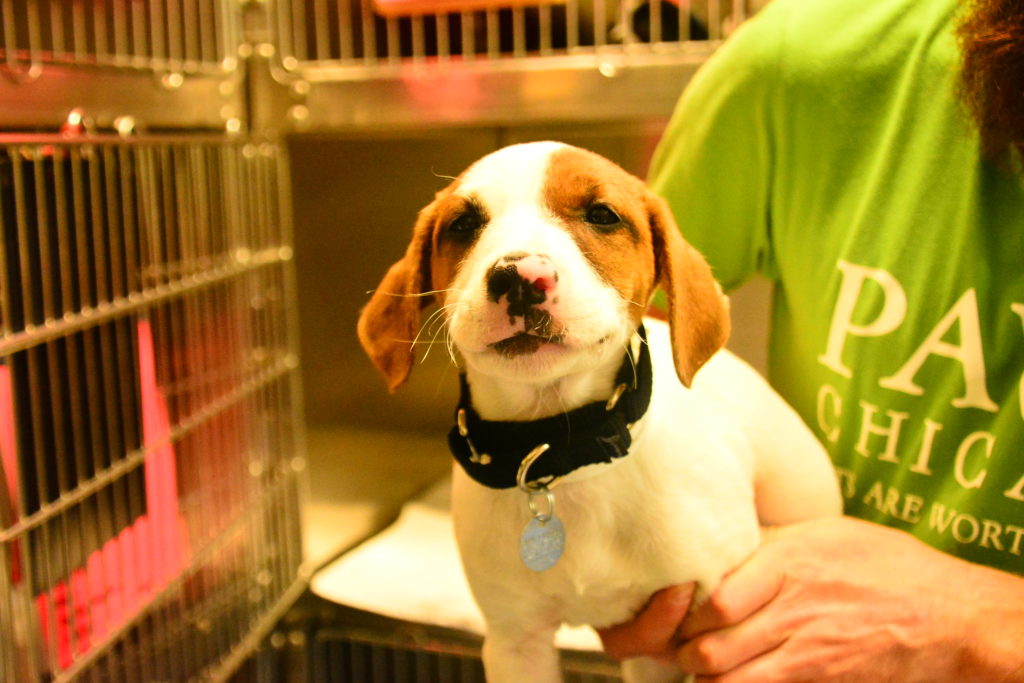
“I am infuriated by the no-kill language, attitudes, labeling, finger-pointing, and bullying,” she said. “The damage we do to each other and the animals by what I see as an ‘I care more than you do’ attitude is so dismissive and rude to all those working very hard for every animal.”
“To add insult to injury, there are really no universally agreed-upon standards, definitions, oversight or views of what ‘no-kill’ even means. I find many organizations refusing to adopt the no-kill language while being very thorough and thoughtful as they explain why,” Christie added.
Some of this controversy over how shelters should run can spill over to strong attacks on shelter leaders on social media and in the press. Some directors have even received death threats.
Noting that she has been spared what some of her colleagues have faced, Christie said, “I have seen good people leave animal welfare over this. It takes a very strong personality and full backing of the board to survive.”
She notes that shelter volunteers can also be a source of attacks when they disagree with decisions or perceive that leadership has not handled a situation optimally.
“The executive director or CEO eventually ends up in the middle of the furor, is seen as the problem maker, and the bad guy. Reaching out to the board of directors to complain is also common,” Christie explained. “Gossip can become what people accept as fact.”
Consequently, one piece of advice that Christie offers to young people considering a career in animal sheltering is: “If you love animals and not people, please do not get involved.”
She tells them, “You will be far more successful if you also appreciate and support people. You cannot help animals without befriending people. Compassion for both animals and people is critical in animal welfare.”
Whereas her grandfather taught Christie about the need to feed animals’ souls and not just their stomachs, she has, clearly, learned that to help both the souls and stomachs of our fellow species, the hearts and minds of human stakeholders must also be nourished—and managed. Such is the case with any nonprofit organization.
After 35 years of taking care of all of these stakeholders, Christie Smith is, without question, a survivor—and a hero to numerous Newport animals whose well-being and happiness, and even the breaths they take, are a direct result of this leader’s actions. I have to believe Grandpa Gaines would be enormously thrilled and proud.
Featured image: a cat at the Seattle Animal Shelter. Image credit vectorbug, CC BY-SA 2.0.

